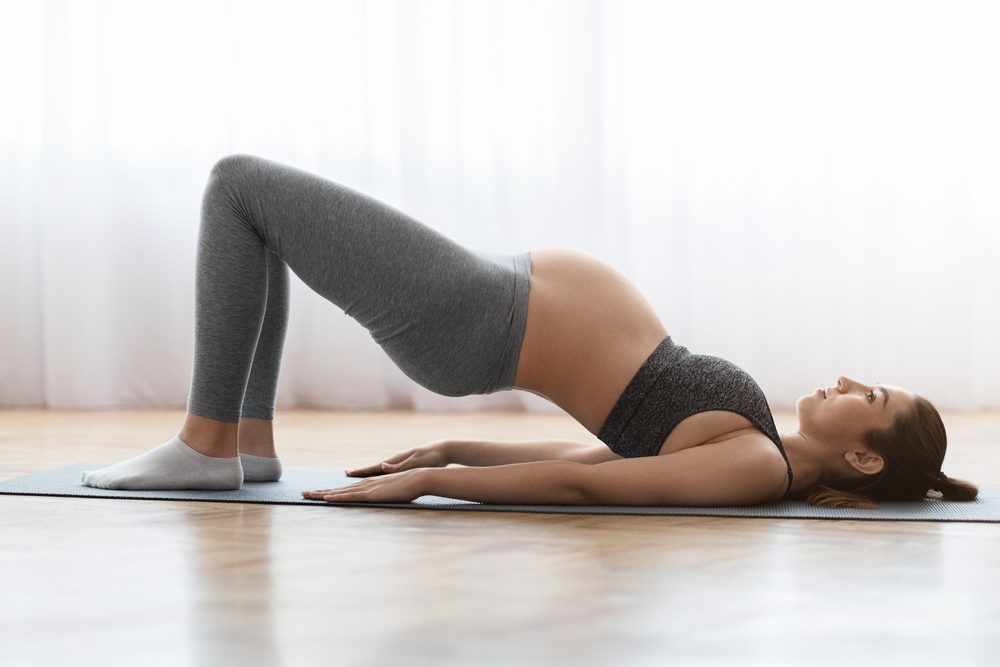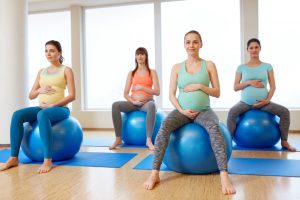
Pilates For Prenatal And Postnatal Women: What To Expect
Although being pregnant and giving birth can be life-changing, they can also be physically demanding. Building strength, increasing flexibility, and lowering stress are all possible for pregnant and postpartum women with safe and effective exercise programs such as pilates. In this article, we’ll examine the numerous advantages of pilates for expectant and new mothers, including how it can aid in a healthy pregnancy and recovery. We will also go over the various pilates techniques and exercises that are suitable for women during these life-changing phases.
The Benefits Of Pilates For Prenatal Women
Pilates is a popular form of exercise for pregnant women due to its low-impact nature and emphasis on core muscle strengthening. In this section, we will look at the numerous advantages of pilates for pregnant women.
- Improved posture: Maintaining good posture can be difficult as a woman’s body changes during pregnancy. Pilates exercises are designed to strengthen the core muscles, which can help improve posture and reduce the risk of back pain.
- Reduced stress: Pregnancy can be a stressful time, and Pilates can help you manage your stress levels. Pilates exercises are intended to promote relaxation and mindfulness, which can aid in the reduction of anxiety and the promotion of a sense of calm.
- Better balance and stability: Maintaining balance and stability can be difficult as the body changes during pregnancy. Pilates exercises, by strengthening core muscles and increasing overall body awareness, can help to improve balance and stability.
- Easier labour and delivery: Pilates can assist in preparing the body for labour and delivery by enhancing the pelvic floor muscles. Pilates can also ease tension in the body and help with breathing, which can ease labour and delivery.
- Quicker postpartum recovery: The body may need some time to heal after giving birth. Pilates can hasten recovery by enhancing overall body awareness and strengthening the core muscles. Pilates can aid in lowering the chance of postpartum complications like incontinence.
Types Of Pilates Exercises For Prenatal Women
Low-impact exercises like Pilates can be a secure and efficient way for expectant mothers to stay active and maintain their physical and mental health. The various Pilates exercises that are safe and effective for pregnant women will be covered in this section.
- Breathing exercises: Pilates includes breathing exercises, which can help expectant mothers unwind and manage stress. Additionally, deep breathing can help the body get ready for labour and delivery and improve oxygen flow to the baby.
- Pelvic floor exercises: Kegels, or pelvic floor exercises, can aid in building up the muscles that support the bladder, uterus, and rectum. These exercises can be especially crucial for expecting mothers because they can support a healthy pregnancy and delivery as well as prevent incontinence.
- Core exercises: The emphasis of pilates on core exercises is one reason the practice is so effective at toning the abdominals, lower back, and thighs. Doing these exercises regularly can help with everything from poor posture to lower back pain to getting ready for labour and delivery.
- Stretching exercises: Practicing regular stretching exercises can help you become more flexible and relieve muscle tension and pain. Pregnant women can safely and effectively benefit from the stretching exercises included in Pilates.
All things considered, Pilates has been shown to help pregnant women in many ways. These include better overall health, less stress and anxiety, and better mental and physical readiness for labour and delivery.
The Benefits Of Pilates For Postnatal Women
Postnatal women can recover from childbirth and enhance their general well-being by engaging in Pilates, which is a secure and efficient form of exercise. The advantages of Pilates for postpartum women will be discussed in this section.
- Core strength: Pilates can help to regain core strength especially since pregnancy and childbirth can weaken the abdominal muscles. Pilates works on the deep core muscles, which can help tone and strengthen the abdominal muscles, which can also help to reduce back pain.
- Improved posture: Because of carrying and breastfeeding infants, many new mothers experience postural changes after giving birth. The back, shoulders, and neck can be protected from strain by practising Pilates, which also helps to improve posture.
- Reduced stress: Pilates is a great way to relieve stress and encourage relaxation during the postpartum period because it can be a stressful time. Your breathing will become more of a focus during Pilates exercises, which can help to lower stress and anxiety.
- Increased energy: Pilates can be a great way to get more energy when you’re feeling drained from all the extra work involved in caring for a newborn. Pilates can help increase vitality and well-being by enhancing circulation and encouraging relaxation.
- Safe exercise: Safe exercise options should be prioritised after childbirth, and Pilates is an excellent choice. Pilates routines are flexible and can be adapted to suit a wide range of fitness levels and medical conditions.
- Postpartum recovery: By toning and strengthening the pelvic floor muscles, Pilates can aid postpartum recovery by reducing the risk of incontinence and providing structural support for the pelvic organs.

Types Of Pilates Exercises For Postnatal Women
Pilates exercises are especially beneficial for postpartum women because they help to strengthen and tone muscles that may have been weakened during pregnancy and childbirth. Following are some examples of Pilates exercises that can be beneficial to postnatal women:
- Pelvic floor exercises: Pregnancy and childbirth can cause pelvic floor muscle weakness, which can lead to incontinence. Kegels, or pelvic floor exercises, can help to strengthen these muscles, improve bladder control, and lower the risk of pelvic floor disorders.
- Abdominal exercises: Pregnancy can cause the abdominal muscles to stretch and weaken, resulting in lower back pain and poor posture. Pilates exercises like the pelvic tilt, abdominal curls, and leg slides can help tone and strengthen the abdominal muscles while improving posture and lowering the risk of back pain.
- Hip and thigh exercises: During pregnancy, the hip and thigh muscles can become tight and weak, causing discomfort and poor posture. Pilates exercises like leg circles, side-lying leg lifts, and inner thigh lifts can help strengthen and stretch these muscles, improving flexibility and reducing pain.
- Upper back and shoulder exercises: Breastfeeding and carrying a baby can cause upper back and shoulder tension and discomfort. Arm circles, shoulder shrugs, and the cat stretch are all Pilates exercises that can help to relieve tension and improve mobility in these areas.
- Whole-body exercises: Pilates is a total-body workout that can help improve overall strength, flexibility, and endurance. This is especially important for postnatal women who may be fatigued and weak after childbirth. Pilates exercises like the plank, bridge, and side-lying series can help improve overall fitness and promote a healthy recovery.
The Importance Of Working With A Qualified Pilates Instructor
While Pilates can be a safe and effective form of exercise for prenatal and postnatal women, it is crucial to work with a qualified Pilates instructor who has experience working with this population. Here are some reasons why:
- Safety: A qualified Pilates instructor can help ensure that you are practising exercises that are safe for you and your baby. They can modify exercises as needed to accommodate your changing body and any physical limitations you may have.
- Individualisation: Every woman’s body is different, and a qualified Pilates instructor can create a customised program tailored to your specific needs and goals. They can also adjust the program as needed throughout your pregnancy and postpartum recovery.
- Knowledge: A qualified Pilates instructor has a deep understanding of the anatomical and physiological changes that occur during pregnancy and postpartum. They can provide guidance and support to help you exercise safely and effectively.
- Accountability: Working with a qualified Pilates instructor can help you stay motivated and accountable. They can provide encouragement and feedback, helping you to stay on track and achieve your fitness goals.
Final Thoughts
Prenatal and postnatal women can benefit from Pilates as a safe and effective form of exercise. Pilates, with its emphasis on core strength, posture, and flexibility, can aid in a healthy pregnancy, delivery, and postpartum recovery. However, working with a qualified Pilates instructor who can tailor exercises to your specific needs and ensure proper form and technique is essential. Pilates practised under the supervision of a qualified instructor allows you to reap the many benefits of this exercise while minimising the risk of injury. Pilates is a great option to consider if you’re pregnant, postpartum, or simply looking for a low-impact way to stay fit and healthy.
Contact Upwell Health Collective Today
If you’re a prenatal or postnatal woman looking to improve your overall health and well-being, consider incorporating Pilates into your exercise routine. To ensure a safe and effective practice, it’s important to work with a qualified Pilates instructor. Upwell Health Collective offers expert-led Pilates classes tailored to the unique needs of prenatal and postnatal women. Contact us today to learn more about our classes and how we can support your health journey.
Please get in touch with us at Upwell Health at (03) 8849 9096 or book an appointment today.
